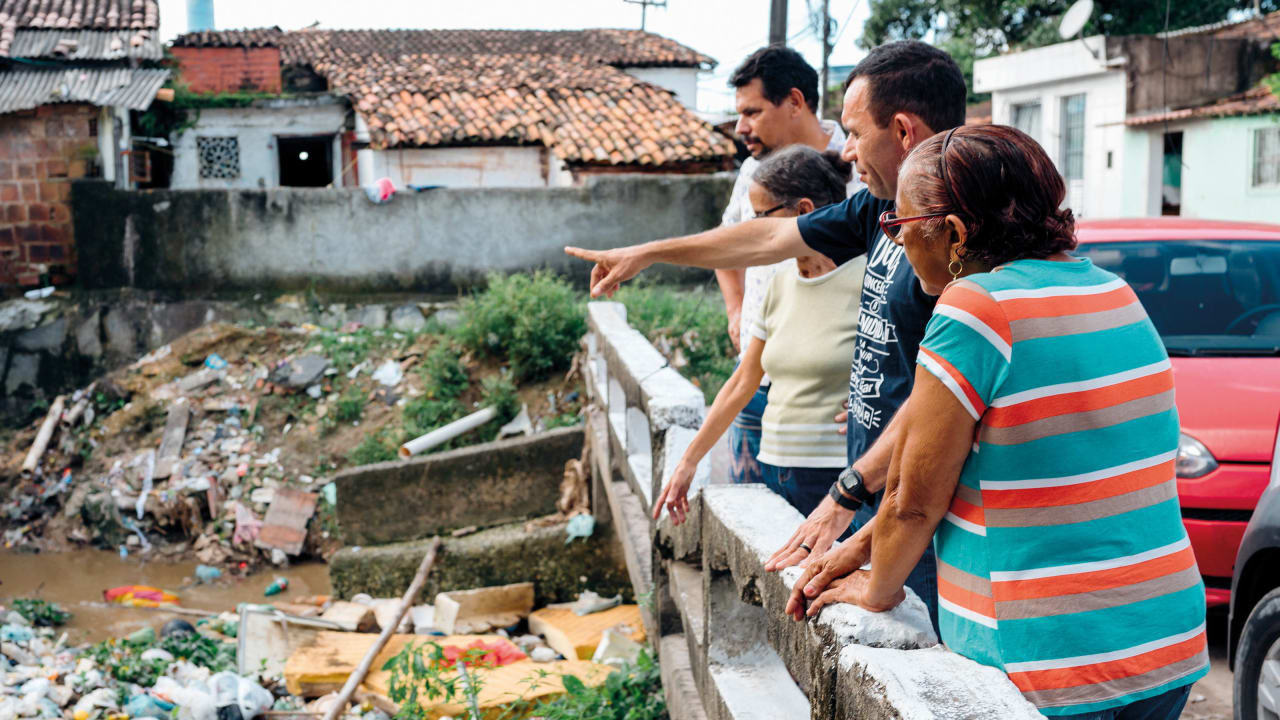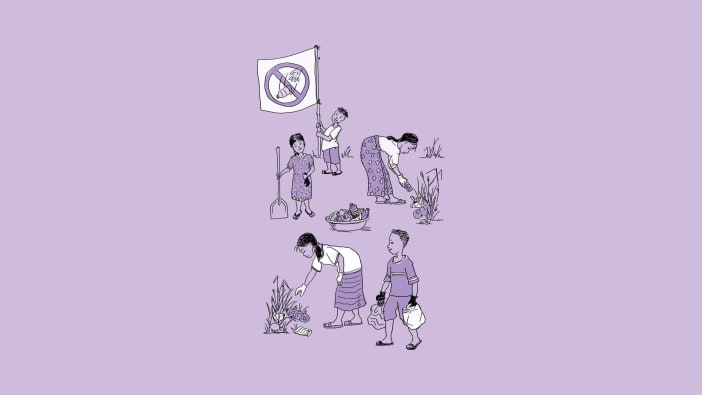The Tejipió River in Recife, Brazil, was filled with waste. This caused it to regularly burst its banks after heavy rains, spreading disease and causing extensive damage to homes and businesses.
With the support of Tearfund’s partner, Instituto Solidare, several local pastors worked together to develop an emergency response plan. When the river next flooded they effectively coordinated support to those most badly affected.
However, the pastors and other community members realised that just responding to the regular flooding was not enough. They needed to take action to try to stop the river from flooding in the first place.
Local churches, schools and community leaders started to talk about what they needed to do. At the same time, Instituto Solidare began meeting with academic institutions and local government officials.
Together, they researched the issue and worked out exactly what they wanted to campaign for: better waste management – including recycling – and the regular cleaning and protection of the river.
A growing movement
Gradually, more and more churches, schools, community organisations, families and individuals joined the movement, by this time known as Rio limpo, cidade saudável (Clean river, healthy city).
In a peaceful protest, 500 community members walked along the river to government buildings and they presented officials with a petition containing 13,000 signatures. Church and community members also cleaned up some parts of the river to draw public attention to the issue.
These actions increased the pressure on the local authorities to respond, and they eventually put in place a cleaning and dredging programme for the river to reduce the risk of flooding.
Long-term struggle
A local forum continues to defend the social, economic and political rights of the river communities. Made up of church leaders, community members and others, the group organises awareness-raising activities and regularly meets with government representatives.
Simone Vieira, Tearfund’s Advocacy Coordinator in Brazil, says, ‘Many of the river communities suffer from discrimination, poor housing and limited access to services. This is a long-term struggle, but everyone involved is committed to standing up for their rights.’








